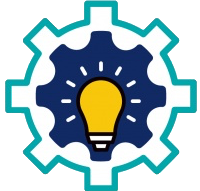Troubleshooting Process Plants Operations
Details :
This Troubleshooting Process Operation training seminar will
enable delegates to remain abreast of the latest researched trends, techniques
and strategies to improve the condition and performance of their operational
process. This hands-on intervention will equip you with the necessary basic
knowledge and skills to optimize the function, daily running, and maintenance
of the five main aspects of the operation, such as demographics, infrastructure,
systems and plant.
Delegates will learn and review the core competencies required for successful operation and implementation of an effective operations process against the background of the current global economic downturn. They will complete several in-seminar assignments, which will enhance their problem solving skills and which will serve as an action plan for improvement. Setting the correct priorities and doing the right thing, makes all the difference to your performance.
This training seminar will include:
- Terminologies,
Tools and Techniques for RCFA
- A
modern holistic approach to understanding the operational process
- Process
Maturity Indexing; Planning; and Protocols
- Exact
performance measurement and performance management modeling
- More
than one hundred “Human Factors” as a Source of Error
Participants attending this training seminar will:
- Gain a
broad understanding and appreciation of the core functional aspects
of how an effective operational process should operate
- Review
the six standard maintenance improvement tactics and their selection
technique to ensure reliable process plant & equipment
- Learn
how to develop a comprehensive operational process resource and support
system analysis
- Understand
the principles of an operational audit, develop your own process standard
- Gain
insight and understanding into the unique leadership and motivation
principles required for technical process operation and management
- Engineering
and Technical Managers and Supervisors from any industry
- Maintenance
Planners and Coordinators
- Operations
and Manufacturing Managers and Supervisors
- Foremen
and Team leaders
- Plant
Engineers and Process System Managers
- Section
Engineers and Planners
DAY 1
Review of Basic Modern Operations Practice
- Review
of Modern Operational Practice in the light of the Global Economic Recession
- Integration
of Maintenance and Production to establish a World Class Operations
Department
- Generic
Performance Measurement Model using a 6-point Scale
- Combining
the parameters of Speed; Quality; and Cost; in maintenance performance
measurement
- The 10-point
Planning Standard and the role of the Planning Department
- Variability
Analysis
- Developing
effective Strategies for the Operational Process in order to achieve
organizational excellence and continuous improvement
DAY 2
Standard Maintenance Improvement Initiatives
- Selecting
the “Correct” Maintenance Tactic Mix
- Reliability
Centered Maintenance (RCM)
- Total
Productive Maintenance (TPM)
- Run To
Failure (RTF)
- Condition
Based Maintenance (CBM)
- Time
Based Maintenance (TBM)
- Skills
Level Upgrade (SLU)
- Design
Out Maintenance (DOM)
DAY 3
Operational Resource Analysis
- A “Blueprint” for
Effective Operational Practice
- Resource
and Support System Analysis with Gap Analysis
- Leadership
Development and Motivation of Operations Employees
- The
PAS 55 Maintenance Process Standard
- Principles
of Information Management
- Training,
Awareness and Competence
DAY 4
Problem Solving in the Operations Environment
- Risk
Identification, Assessment and Control
- Theory
of Inventive Problem Solving
- Problem
Solving Techniques and Application
- Exercises
and Facilitation
DAY 5
Scenario Analysis and Action Plan Development
- Relationships
Scenario Analysis
- Assessment
Assignment
- Scoring
of Your Operational Process
- Understanding
the Complexity - Putting it all together
- All lectures are in colorful presentation
- All lectures are interspersed with interactive discussion
- All lectures include group discussion, case history and exercises
- Actual major incidents as well as industry experience are reviewed
- Participants receive a multicolor course manual
- Pictures of real incidents and case history are shown
- Videos on the subject are shown
0900 to 1500 including breaks


